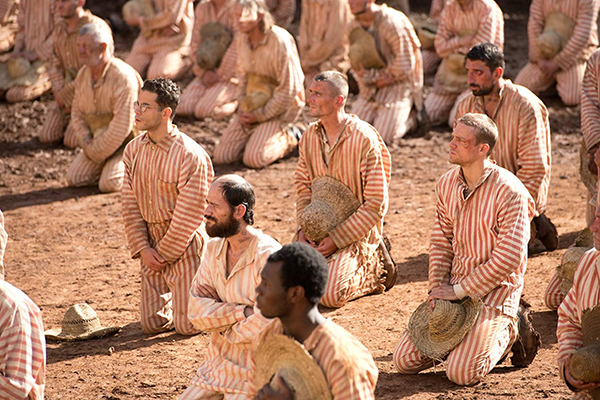
'Papillon' dramatizes Henri Charrière's penal colony incarceration
By Diane Carson
Forty-five years ago, 1973, Steve McQueen and Dustin Hoffman starred in director Franklin J. Schaffner's suspenseful film "Papillon." Based on the Henri Charrière autobiographies "Papillon" and "Banco," "Papillon" dramatizes the incarceration of this French safecracker, unlawfully convicted of murder, sent with dozens of other prisoners to the vile jungle penal colony of French Guiana, on South America's northeast coast.
The title "Papillon," butterfly in French, derives from the tattoo on Henri's upper chest. The sensationalized drama recounts 14 horrific years, 1931 to 1945, in Charrière's life. Prisoners endured hard labor, regular beatings by guards, brutal fights with other inmates, attempted escapes with years in solitary confinement upon recapture, and, occasionally, death by guillotine. Charrière, with fellow prisoner Louis Dega, devised several ingenious scenarios to reacquire their freedom. While it could at times qualify as torture porn, the men look too healthy to be convincing, and while the gore is more graphic, the emotional appeal is pushed but flat.
Arguments as to the veracity of the story aside, the current remake presents the same basic events as the McQueen/Hoffman version, though comparison/contrasts reveal, as always, a great deal about contemporary morés. In the title role in '73, McQueen commanded the screen as few other actors have, exhibiting a charismatic presence. The camera loved him as it does with stellar stars. By contrast, giving a solid but uninspired performance, Charlie Hunnam, as Papillon, does not project the essential, dynamic persona. More interesting, as his collaborator and counterfeiter Dega, Rami Malek presents a complex character, one who suggests much more than he reveals, as Malek has in his fascinating "Mr. Robot" series on television.
Paraphrasing the great director John Huston, it is folly to remake great films; only good stories badly made should be tackled. And yet even on its own, director Michael Noer's 2018 study of man's inhumanity to man, cruelty producing cruelty, with a measure of camaraderie among prisoners, lacks impact. Check local listings.


